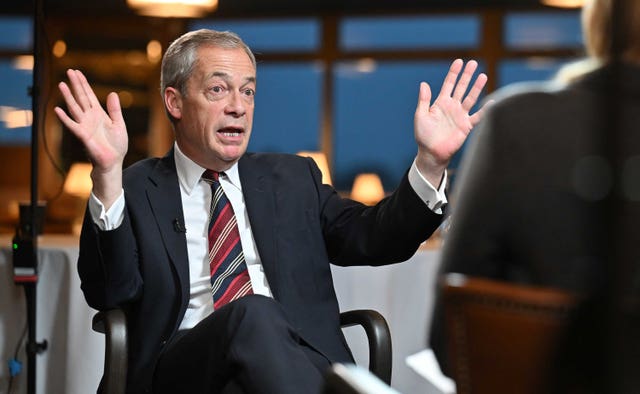
Nigel Farage, Jeremy Corbyn and Lord Kinnock are among more than 160 politicians urging the England and Wales Cricket Board to boycott next month's Champions Trophy match against Afghanistan.
England's men's ODI team is due to face Afghanistan in Lahore on February 26, but Westminster has called on the ECB to reject the match in opposition to the Taliban regime's violation of women's rights.
Women have been effectively banned from the sport since women returned to power in 2021, a move that puts the Afghanistan Cricket Board in direct breach of International Cricket Council rules.
With the ICC still allowing the Afghan men to compete, Parliament issued a strongly worded letter pleading with the ECB to raise its moral objections.
The report, drafted by Labor MP Tonia Antoniazzi and signed by cross-party groups in the House of Commons and Lords, lays out the “insidious dystopia” unfolding in Afghanistan.
ECB statement
The statement, addressed to ECB chief executive Richard Gould, concluded: “We strongly urge England men's football players and officials to speak out against the horrific treatment of women and girls in Afghanistan under the Taliban.
“We also urge the ECB to consider boycotting the upcoming match against Afghanistan… to send a clear signal that this outrageous abuse will not be tolerated.
“We must fight against gender apartheid and we implore the ECB to send a strong message of solidarity and hope that the suffering of Afghan women and girls does not go unnoticed.”

ECB Chief Executive Richard Gould responded quickly, reaffirming the ECB's principles while advising all member states to take a unified approach rather than act individually.
“The European Central Bank strongly condemns the treatment of Afghan women and girls under the Taliban regime,” he said.
committed to growth
“The International Cricket Federation's statutes require all member countries to be committed to the growth and development of women's cricket. In line with this commitment, the ECB maintains its position not to arrange any bilateral cricket matches with Afghanistan.
“While there is no consensus within the ICC on further international action, the ECB will continue to actively advocate for such measures.
“A coordinated approach within the ICC will have a greater impact than unilateral actions by individual members.
“We acknowledge and respect the different views on this global issue. We understand the concerns raised by those who believe that a boycott of men's cricket may inadvertently support the Taliban in suppressing freedoms and isolating Afghan society.
“It is vital to recognize the importance of cricket as a source of hope and positivity for many Afghans, including those who have been displaced.
“The ECB is committed to finding solutions that uphold the rights of women and girls in Afghanistan, while taking into account the wider impact on the Afghan people.
“We will continue to engage in constructive dialogue with the UK Government, other stakeholders, the International Cricket Council and other international cricket boards to explore all possible avenues to achieve meaningful change.”
DCMS statement
A spokesman for the Ministry of Culture, Media and Sport said: “We are deeply concerned about the serious violations of the rights of women and girls in Afghanistan.
“While participation in the ICC Champions Trophy is a matter for the International Cricket Council and the England and Wales Cricket Board, we are liaising with the ECB on the wider issue of the Afghanistan women's cricket team.
“We welcome the ECB’s representations to the ICC on this wider issue and what support can be provided.”
The situation harkens back to the 2003 World Cup, when Nasser Hussain's England abandoned a match against Zimbabwe in protest against Robert Mugabe's regime, a move advocated by politicians , but did not make a decision on behalf of the team.
Source link



